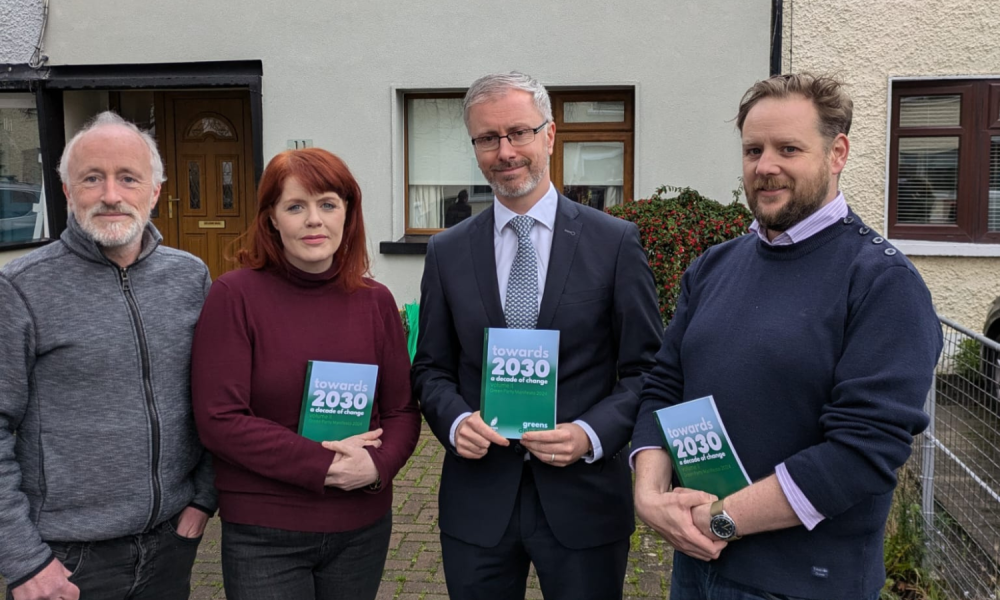Green Party Plan for Warmer Homes

The National Retrofit Plan developed by Minister Eamon Ryan is world beating. Because of it, the EPA says we are on track to hit our target of a 40% reduction in greenhouse gas emissions from residential buildings.
The plan has been successful for two reasons. First, we have provided certainty to the retrofitting industry by setting ambitious medium-term targets. This has given companies the confidence to hire and train staff and invest in equipment. Second, we have backed up these targets with funding. Over half of new revenue from the carbon tax is ringfenced for the retrofitting programme. Resources have been topped up further in the National Development Plan, bringing the total allocation for grants and subsidised loans to €1.3 billion between 2022 and 2025.
This programme means that 1,000 homes per week are being retrofitted, and that number is rising quickly. According to the SEAI, retrofits in the first quarter of this year were up 18% on the same period last year.
It is a socially progressive policy. Over half of the money has been invested in low-income homes. Last year we retrofitted 2,500 local authority homes, and almost 6,000 low-income privately-owned homes for free.
Our Plan
Even if it wasn’t for the climate emergency, we would support a massive expansion of state efforts to insulate our homes. In addition to cutting emissions, it saves people on their energy bills, increases the value of their homes, and improves their health.
To take these efforts further, we will:
Establish an Equity-Based Retrofit scheme
We have put a low-cost loan scheme in place to cover the portion of the cost of a retrofit that is not paid for by SEAI grants. But some households, especially those headed by older people, may not be willing or able to take on debt to retrofit their homes, even if the loan is subsidised.
We therefore propose to introduce an equity-based scheme for homeowners.
A financial institution, known as a special purpose vehicle (SPV), will be established jointly with the banks to provide funding of between €5,000 and €75,000 in exchange for an equity stake in the family home. Following the retrofit work, the value of the home will increase, likely by a value greater than the equity stake held by the SPV.
The equity stake will attract a charge, but this will be less than the household’s expected energy cost savings.
Over time, the household will have the option to buy out the SPV’s equity stake.
If they do not choose to buy out the equity stake, the SPV will recoup it when the home is bequeathed or sold.
Make solar panels free for low-income homes
The energy credits and bullet social welfare payments we put in place during the energy price crisis caused by Putin’s brutal invasion of Ukraine were critical for shielding people from fuel poverty. However, the ultimate solution to high energy prices is to generate home-grown electricity.
In Government, we cut taxes on solar panels, removed the requirement to get planning permission for them, and facilitated people to sell excess power back to the grid.
We now want to provide an essential support to 200,000 low-income households by providing 100% grants for the installation of social panels.
Make attic and cavity wall insulation free
Another response to the energy price crisis was the introduction of an 80% grant for attic and cavity wall insulation for all households. We now propose to increase that to 100%.
This kind of work can be done quickly, with minimum disruption, and immediately save you up to €600 on your annual bills.
Expand and Mainstream the Warmth and Wellbeing Scheme
In 2022, a pilot scheme which provided free retrofits to people suffering from asthma or COPD concluded. The impacts of the scheme have been studied extensively by the London School of Tropical Medicine. They have found that the scheme had remarkable impacts on physical and mental health. The participants’ symptoms improved, they had to visit the GP and the hospital less frequently, and experienced significant reductions in anxiety and depression.
We propose to mainstream this pilot, extending it to all low-income homes with asthma and COPD, and to examine further extensions to people with other chronic illnesses.
Introduce a €30,000 retrofit tax deduction for landlords
We introduced a €10,000 income tax deduction for landlords that avail of SEAI grants to undertake retrofitting work.
Going forward, we would provide a more generous tax deduction, increasing it to €30,000 to be claimed over multiple years of rental income, on the condition that the landlord makes an offer of a long-term secure tenancy.
A generous level of support is required to address the split incentive problem – i.e., the problem that while the landlord must finance the retrofit, the tenant is the one that experiences the benefit in terms of a warmer home and lower energy bills.


